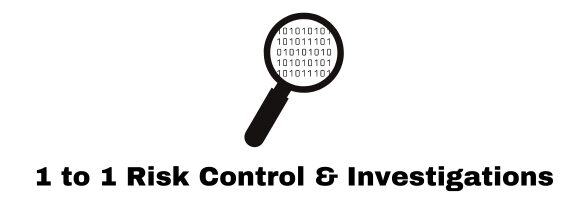405-458-5710
Confidentiality Guaranteed
405-458-5710
Confidentiality Guaranteed
You are Reading:
-
1 to 1 Risk Control & Investigations > Blog > Situational Awareness > Understanding Weaponized Incompetence

Jul
Understanding Weaponized Incompetence
Definition of Weaponized Incompetence: Weaponized incompetence refers to the deliberate act of feigning inability or ignorance to avoid responsibility, tasks, or duties. This tactic can be used in various settings, including workplaces, relationships, and social interactions. Individuals employing this strategy often exaggerate their lack of knowledge or skill to shift the burden onto others.
Recognizing Weaponized Incompetence: Identifying weaponized incompetence can be challenging, as it often masquerades as genuine lack of ability or understanding. Key indicators include repeated failure to complete tasks correctly despite clear instructions, consistent underperformance in specific areas while excelling in others, and a pattern of passing off responsibilities to more capable individuals.
Examples in the Workplace: In professional settings, weaponized incompetence can manifest in various ways. An employee might repeatedly make errors in reports or miss deadlines, forcing coworkers or supervisors to take over the work. This tactic can lead to increased workload for others, creating an unfair and inefficient work environment. Managers must be vigilant in distinguishing between genuine incompetence and deliberate avoidance.
Impact on Relationships: In personal relationships, weaponized incompetence can create significant strain. One partner may consistently claim to be unable to perform household chores correctly, leading the other partner to take on an unfair share of the responsibilities. Over time, this imbalance can lead to resentment and frustration, undermining the relationship’s foundation of trust and cooperation.
Psychological Manipulation: Weaponized incompetence is a form of psychological manipulation. By pretending to be incapable, the individual manipulates others into taking on their responsibilities. This behavior can erode trust and respect, as those affected may feel used and undervalued. Understanding the manipulative nature of this tactic is crucial in addressing and countering it effectively.
Confronting Weaponized Incompetence: Addressing weaponized incompetence requires clear communication and assertiveness. It is essential to set clear expectations and boundaries, emphasizing the need for accountability and responsibility. Calling out the behavior directly and providing specific examples can help highlight the issue and initiate a conversation about fair distribution of tasks.
Building a Culture of Accountability: In workplaces, fostering a culture of accountability is vital. This involves creating an environment where everyone is held responsible for their tasks and contributions. Regular performance reviews, transparent communication, and team-building activities can help establish a sense of shared responsibility and reduce the likelihood of weaponized incompetence.
Empowering Through Training: Providing training and development opportunities can mitigate weaponized incompetence. By equipping individuals with the necessary skills and knowledge, organizations can reduce the likelihood of employees using incompetence as an excuse. This approach promotes personal growth and professional development, benefiting both the individual and the organization.
Legal and Ethical Considerations: In some cases, weaponized incompetence may cross into unethical or even illegal territory, particularly if it leads to significant financial losses or breaches of duty. Understanding the legal implications and ethical considerations of this behavior is crucial for organizations to protect their interests and ensure compliance with regulations.
Seeking Professional Help: In severe cases, seeking the assistance of a professional mediator or counselor may be necessary. This is especially true in personal relationships where weaponized incompetence has caused significant strain. A neutral third party can help facilitate productive discussions and mediate conflicts, fostering a healthier and more balanced dynamic.
Long-term Solutions: Addressing weaponized incompetence requires a long-term commitment to change. It involves continuous monitoring, feedback, and reinforcement of positive behaviors. By creating a supportive and accountable environment, individuals and organizations can effectively counteract this manipulative tactic and promote a culture of competence and fairness.
Weaponized incompetence is a subtle yet impactful form of manipulation that can undermine productivity, fairness, and trust in various settings. Recognizing and addressing this behavior is essential for fostering healthy relationships and effective work environments. Through clear communication, accountability, and continuous improvement, it is possible to mitigate the effects of weaponized incompetence and promote a culture of competence and responsibility.
- AI
- Bug Sweeps
- Car Security
- Cyber Crime
- Cyber-Stalking
- Digital Forensics
- Fraud
- Geo-Political
- GPS Tracking
- Hidden Cameras
- Identity Theft
- Investigations
- Misinformation
- Mobile Device Forensics
- Mobile Device Security
- Operational Security
- Privacy
- Psychology
- Situational Awareness
- Social Media Investigations
- Stalking
- Surveillance
- Uncategorized
